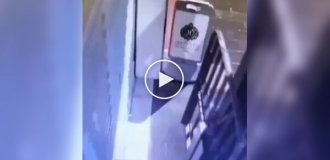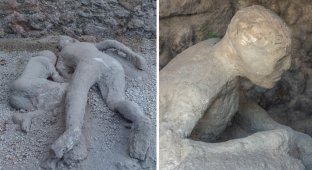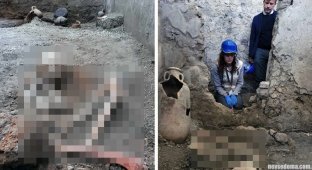Artificial intelligence was used to decipher manuscripts lost due to the eruption of Vesuvius (4 photos + 1 video)
In 79 AD, the devastating eruption of Mount Vesuvius literally destroyed the Roman city of Herculaneum, as well as Pompeii. 
Under a multi-meter layer of volcanic ash there was also a unique library belonging to Julius Caesar's father-in-law, the local nobleman Lucius Calpurnius Piso Caesoninus. Hundreds of scrolls with writings, under the influence of high temperatures, turned into charred firebrands and lay untouched for almost two thousand years. 
But not all of them turned to dust, some remained in more or less decent condition, but it was impossible to unwrap them, they could crumble. Since the Herculaneum scrolls are the only surviving library from antiquity, they are of great interest.
Progress does not stand still and scientists have finally figured out how to read them. Employees of the University of Kentucky launched the “Vesuvius Challenge” competition for AI specialists, they were supported by investors from Silicon Valley. Those who can at least more or less restore the contents of the charred scrolls will receive cash prizes. 
Participants were provided with thousands of 3D scans of two burnt scrolls and three papyrus fragments. And the event turned out to be a success. A program was created to find and display a 2D surface inside a 3D object, which allows you to virtually expand and read text. An artificial intelligence was also developed that was trained to read the letters in the scrolls based on the subtle changes that the ancient ink made to the structure of the papyrus. 
πορφύραc, meaning purple
Two experts, independently of each other, managed to begin restoring ancient texts using the neural networks they had modified. Luke Farritor from Nebraska and Yusef Nader from Berlin reported that they were able to read the first word in one of the scrolls and the word was... They didn’t guess. "Porphoros" - which is translated from Greek as purple dye.
Since Luke reported it first, he received $40,000, and Nader received $10,000. In total, the prize fund is $1,000,000.
Dr Federica Nicolardi, a papyrologist at the University of Naples Federico II, said three lines of the scroll, containing up to 10 letters, could now be read and more were expected.























